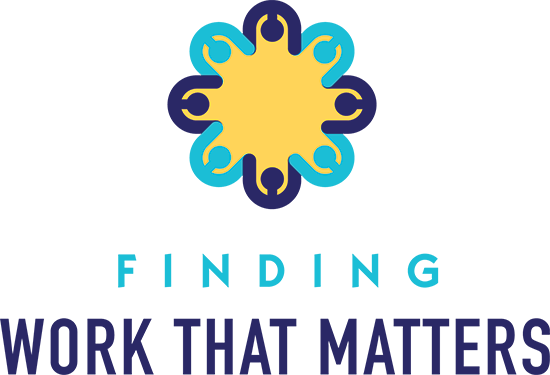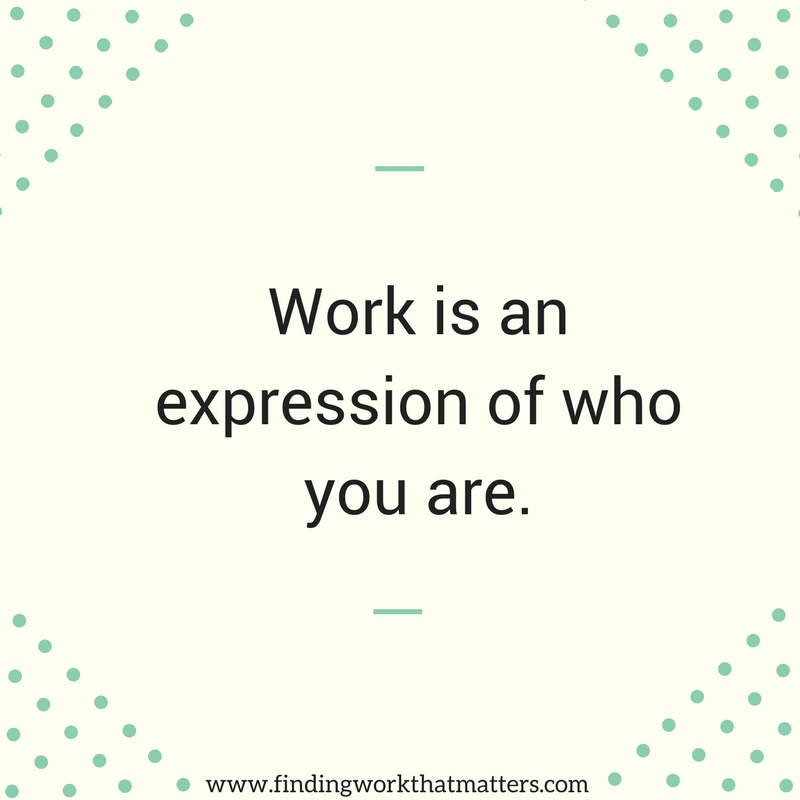8 (Flawed) Things You Say When You Are in a Crappy Job
/We’ve all been there. My crappy job was working in a factory. By the second day, I had mastered all of my tasks. By the end of the first week, I was categorically bored.
Here’s why I didn’t walk out the door:
I had rent to pay next month.
My aunt had pulled strings to get my job; she told me I better not quit.
I had spent all of my savings while looking for a job.
Each day I looked at my long-term co-workers and wondered how they could stay there for 20 years (or more!).
Now I know my boredom is a pretty good clue that job wasn’t a good fit for me. There are other signs: frustration, annoyance, unhappiness, resentfulness, feeling lost, restlessness, and feeling either depleted or disheartened.
The feelings are accompanied by thoughts, often conflicting. Wanting to stay. Wanting to leave.
When I talk to people who are unhappy in their work, they have a lot of reasons to stay in their job. Here’s what some of them have to say and my response:
1. “My work isn’t all bad. I like the people."
I remember once talking to my Spanish teacher about the idea of moving and how I didn’t want to move because I knew so many great people. He told me that great people are everywhere.
Good point.
Although it is imperative to have a work environment where you feel at ease and enjoy your team members, your motivation and satisfaction level is measured by an internal drive. Intrinsic motivation. Examples of intrinsic motivation are knowledge, growth, accomplishment.
Staying in a job mainly because of the people will eventually wear thin
If you are in a job where the majority of the time you are involved in activities that do not engage you, you will be counting the hours until the weekend no matter how great the people are.
2. “I can’t afford to make a change.”
If your job is sucking your life energy, you can’t afford not to make a change.
There can be a high cost to staying in a crappy job. Always an interesting activity is looking at how you spend money. Especially when unhappiness enters the equation. Coping strategies are about creating ease and happiness in other areas of life. Take out coffee every day? Going out for lunch?
In addition to the financial costs of not making a change, it is intriguing to watch the willingness to trade happiness or meaningfulness for financial gain.
3. “Something familiar is so much more appealing than something unknown.”
Yes. Familiar feels better. Because our survival feels like a guarantee if we stay on the couch.
We are hardwired for survival so there is a strong tendency to stay with the familiar.
Except humans are more complex. There also is a strong pull to learn and grow and that takes us into the unknown.
When I made a big change in my life, I carried this quote around with me:
“A ship in harbor is safe — but that is not what ships are built for.” — John A. Shedd.
4. “I’m scared.”
This is tied to the previous item in that fear is one of those feelings integral to making sure that you are safe.
If you know that any time you do something new that fear is going to come along for the ride (and it does), you can have a little chat with it.
Elizabeth Gilbert, author of Big Magic, wrote a letter to fear. She talks about it here. https://www.facebook.com/GilbertLiz/posts/980409515374497:0
5. “It’s called work for a reason.”
Embedded in our culture is a sense that being miserable at work is the way it’s supposed to be. Indeed the 70% of people are not engaged with their work according to a Gallup poll.
That belief is one of those shrewd traps to keep us in our place. The underlying component is fear.
There is a price you pay when you are miserable at work: physical ailments, emotional and mental conditions, disconnection from ourselves. It also spills over onto your family and relationships.
What do we model to our children when we are coming home depleted and cranky from crappy jobs?
6. “Work isn’t that important. My family is.”
Work is a significant part of who you are.
Work is an expression of who you are. When you are introducing yourself, the first question that often arises is what you do.
Work is where you develop your mastery and where you contribute to others. Whether you get paid for it or not.
So it isn’t a matter of family or work; it’s about both.
7. “I can’t imagine anything different.”
Once I met with a client and asked him what kind of work that he wanted to do. He said that no one had ever asked him that. And so he found work that he saw around him – what his father or friends did.
Except he was having trouble staying in one job. As we worked together, what he found out about himself was how important it was to work with people. Being a mechanic alone in a shop wasn’t working for him.
Imagining that you can find work that makes you happy can be new and strange. But once you find it.....
Author Barbara Sher offered an analogy for a person finding their fit. She thought of a horse being raised in a basement. Even though it has no idea what a pasture was, when it gets out there, it just knows what to do.
That is true for you. When you find that great work fit, you will move into it with amazing ease (and joy!).
8. “I can address my crappy job issue later…. (when the kids are out of the house, when the mortgage is paid, etc.).”
Also known as the martyr syndrome. There is an illusion that there is lots of time and that what you want can be put on hold because of other priorities. But is that true? What we know for sure is we have no idea how much time we have on this planet.
When you have a crappy job, a question to reflect on is how going to work every day is a priority yet what you actually do during work time is not.
So how do you get out of your crappy job? You start moving in the direction you want to go. How do you figure out that direction? One step at a time.
Other blog postings you may like:





















